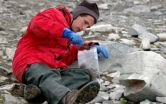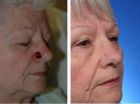(Press-News.org) A century old mystery as to why, for some animals, it's the father rather than the mother that takes care of their young has been cracked by scientists at the University of Sheffield and University of Bath.
Researchers from the University, in collaboration with the University of Bath and Veszprém (Hungary) found that role reversal was caused by an imbalance in the numbers of males relative to females.
The findings have been published in the journal Nature Communications.
Darwin noted in 1871 that in most animals, it is the females that spend most time looking after the young, whilst males focus on competing with each other for females.
Evolutionary biologists argued that this was due to the female investing significant amounts of energy in producing eggs, and in the case of mammals, giving birth, and so it is in their interests to ensure their offspring's survival by caring for them.
However, in some species, such as seahorses, the sex roles are reversed where the females produce the eggs but then leave it to their male mates to care for their offspring.
Dr András Liker, Marie Curie Research Fellow from the University of Sheffield's Department of Animal and Plant Sciences, said: "Sex-role reversal has been a formidable puzzle for evolutionary biologists ever since Darwin. Our study is the first supporting the idea that sex ratio plays an important part in the evolution of role reversal."
The researchers studied birds where the sex roles were reversed and found there was a higher ratio of males to females in the population, compared with the usual situation where females care for offspring.
Professor Tamás Székely, Professor of Biodiversity at the University of Bath, explained: "The research group has investigated sex role reversal for over 20 years, and was extremely pleasing to see such a clear cut result.
"Mathematical models suggest that these animals' behaviour is strongly influenced by their social environment, and our findings support these predictions.
"When there are lots of males in a population, it's harder to find females, so it benefits males to stay with their mate and look after the young.
"However, the females often take advantage of this and leave the male holding the baby, whilst they go and find another mate."
Females in the sex role reversed species also take on the traditional male role of being bigger and compete with each other for males.
The role reversal isn't usually seen in mammals: since males can't produce milk it's not as easy for them to take over the parenting completely. However changes in sex role behaviour have been observed in humans when the sex ratio is imbalanced.
###
END
An additional 1,000 patients could undergo kidney transplants in the United States annually if hospitals performed more transplants using paired kidney exchanges, new Johns Hopkins research suggests.
Also known as kidney chains, paired kidney exchanges, which allow incompatible donors to give a kidney on a loved one's behalf and ensure that loved one gets a compatible kidney from a third party — usually a stranger — in return, have become much more common since 1999 when The Johns Hopkins Hospital pioneered the practice. But the dramatic growth in the use of these exchanges ...
Researchers have determined a way to predict and protect against new strains of the flu virus, in the hope of improving immunity against the disease.
Influenza is a rapidly spreading acute respiratory disease. Worldwide, annual seasonal epidemics of the flu result in 3-5 million cases of severe illness, and up to 500 000 deaths. A newly emerged virus can spread across 74 countries in 2 months.
The study led by the University of Melbourne with Monash University and international colleagues has found how to predict and potentially stop the mutating cells of the influenza ...
Although they live in similarly extreme ecosystems at opposite ends of the world, Antarctic insects appear to employ entirely different methods at the genetic level to cope with extremely dry conditions than their counterparts that live north of the Arctic Circle, according to National Science Foundation- (NSF) funded researchers.
Writing in the Proceedings of the National Academy of Sciences, the researchers concluded, "Polar arthropods have developed distinct... mechanisms to cope with similar desiccating conditions."
The researchers noted that aside from the significance ...
New Rochelle, NY, March 12, 2013—The foodborne bacteria Listeria monocytogenes sickens about 2,500 people in the U.S. each year and many more worldwide, killing about 25-30% of those infected. Listeriosis is caused by eating food contaminated with L. monocytogenes, and current methods for detecting the bacteria are costly and time consuming. An innovative nanotechnology-based method for developing an inexpensive biosensor to detect the pathogen in food is described in Industrial Biotechnology, a peer-reviewed journal from Mary Ann Liebert Inc., publishers (http://www.liebertpub.com). ...
ANN ARBOR, Mich. — The skin cancer growing on Carolyn Bohlmann's nose was not a very aggressive variety. But it was deep and located right on her nostril. The tricky part was not so much removing it – MOHS surgery, the procedure Bohlmann had, is a fairly common outpatient procedure.
The tricky part would be reconstructing her nostril so that it didn't lift up or droop down. It's an important cosmetic issue, but it's also critical for breathing.
Bohlmann opted for a new reconstruction technique her surgeon, Jeffrey Moyer, M.D., was offering at the University of Michigan ...
ANN ARBOR— Cryptic comments seem to have an ambiguous, obscure or hidden meaning. In biology, cryptic species are outwardly indistinguishable groups whose differences are hidden inside their genes.
Two University of Michigan marine biologists have identified three cryptic species of tiny clams, long believed to be members of the same species, which have been hiding in plain view along the rocky shores of southern Australia for millions of years.
The unusual convergence of a climate-cooling event and the peculiarities of local geography caused the three cryptic species ...
HeLa cells are the world's most commonly used human cell lines, and have served as a standard for understanding many fundamental biological processes. In a study published today in G3: Genes, Genomes and Genetics online, scientists at the European Molecular Biology Laboratory in Heidelberg, announce they have successfully sequenced the genome of a HeLa cell line. It provides a high-resolution genomic reference that reveals the striking differences between the HeLa genome and that of normal human cells. The study could improve the way HeLa cells are used to model human biology.
The ...
Once Andrei Tokmakoff gets his new laser laboratory operational later this year, he will use the world's shortest infrared light pulses to pluck molecular bonds like a stringed musical instrument.
Tokmakoff, the Henry G. Gale Distinguished Service Professor of Chemistry, arrived at the University of Chicago in January to tackle new problems in biology with the aid of ultrafast vibrational spectroscopy methods that he has developed.
"He does very sophisticated spectroscopy, in particular vibrational spectroscopy," said Richard Jordan, professor and chairman of chemistry. ...
Researchers from Sahlgrenska Academy, University of Gothenburg, Sweden, have found that a commonly used drug to treat anemia in heart failure patients does not improve patients' health, nor does it reduce their risk of death from heart failure. Results of the international study were presented at the American College of Cardiology's annual meeting in San Francisco on March 10 and published simultaneously online by The New England Journal of Medicine.
Initiated in 2006, the RED-HF (Reduction of Events With Darbepoetin Alfa in Heart Failure) trial involved 2,278 anemic ...
Des Moines, IA – A new study by researchers at the University of Arizona and Northwest Missouri State University shows that standing and lying behavior can predict heat stress in cows.
In a presentation at the 2013 ADSA Midwest Branch / ASAS Midwestern Section Meeting, Dr. Jamison Allen explained that predicting heat stress is vital for keeping cows healthy and productive. Cows will pant, eat less and produce less milk when their core body temperature increases.
Allen said cows prefer standing to lying on hot days. Cows stand to allow more of their surface area to disperse ...



